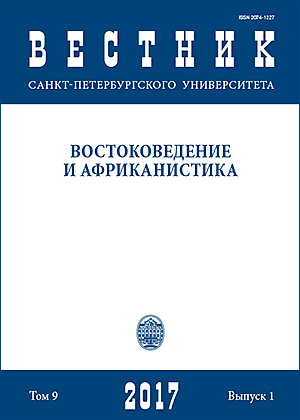Language and Food Safety: the “Zombie Meat” scandal
DOI:
https://doi.org/10.21638/11701/spbu13.2017.107Abstract
Food safety scandals that threaten the health and wellbeing of Chinese consumers have been discussed intensively in the past few years, such as milk powder scandal that resulted in children’s deaths or recycled oil from garbage used in restaurants. Food issues are therefore receiving growing attention from Chinese media, which represent the main channel to spread and construct a new collective national identity. This preliminary study analyses, over a period of 1 week following the food scandal, a corpus of media contents related to the so-called 40 year-old “zombie meat” incident, a recent food scandal that took place in mainland China during June 2015. In particular, two different Chinese language websites will be object of analysis, namely: a government-owned website (leading key news website source people.com.cn) and an enterprise-owned media (UGC source sina.com.cn), based on the hypothesis that the two of them should produce different types of textual genres and language register in the report of the same single event.
Keywords:
Chinese Media, Food Safety, Zombie Meat
Downloads
References
Downloads
Published
How to Cite
Issue
Section
License
Articles of "Vestnik of Saint Petersburg University. Asian and African Studies" are open access distributed under the terms of the License Agreement with Saint Petersburg State University, which permits to the authors unrestricted distribution and self-archiving free of charge.





